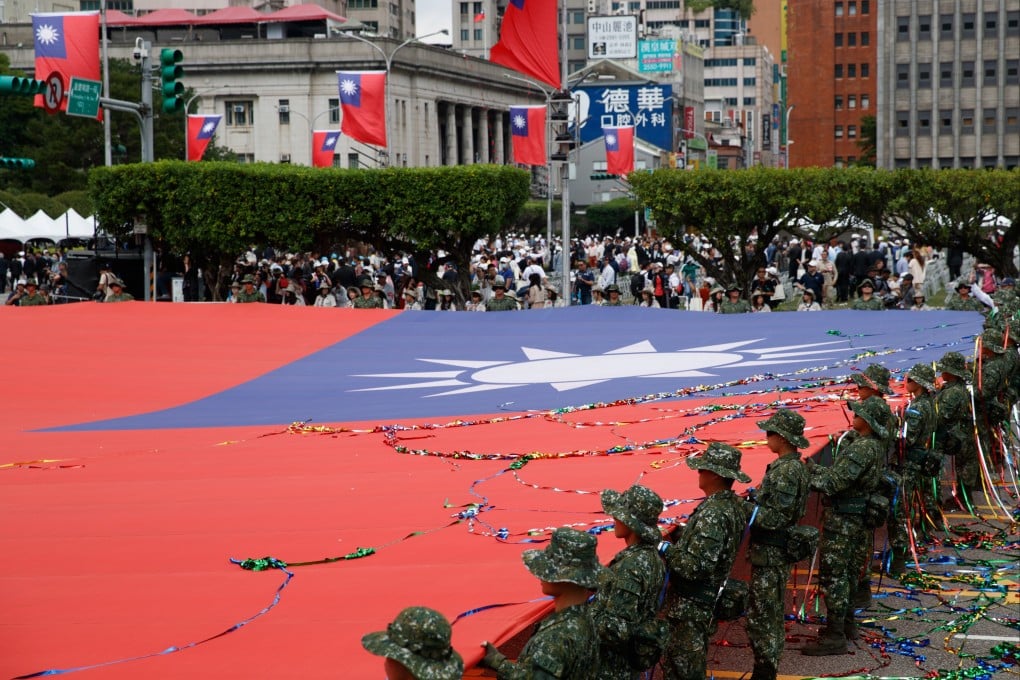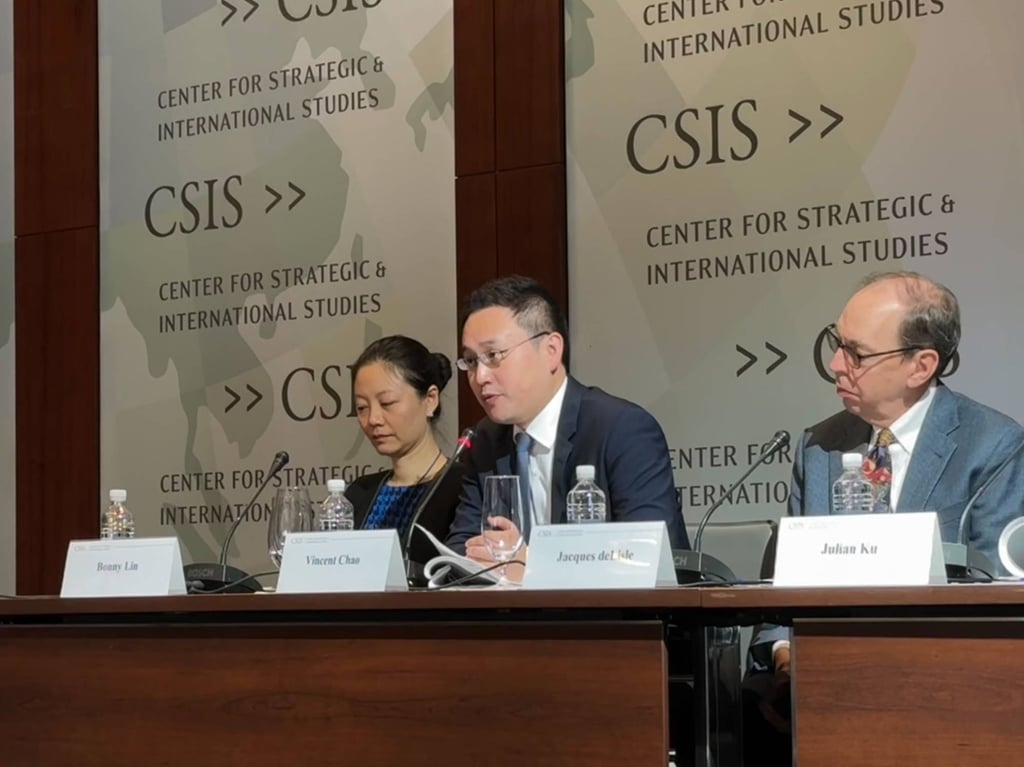Advertisement
Beijing could soon elaborate Anti-Secession Law for ‘non-peaceful’ Taiwan reunification
Cautionary remarks by former US envoy, Taipei lawmaker come after PLA unleashes blockade drills over speech by island’s ‘separatist’ leader
Reading Time:3 minutes
Why you can trust SCMP
30

Kawala Xiein Washington
A former US envoy and Taiwanese lawmaker have warned that Beijing could delve into further detail regarding mainland China’s law enabling it to act towards “non-peaceful” reunification with Taiwan.
Advertisement
Next year Beijing could use the 20th anniversary of its Anti-Secession Law to clarify how “non-peaceful means” may be taken against Taiwan, according to Taipei City councillor Vincent Chao.
Chao delivered his cautionary remarks at the launch of a report assessing the legal implications of the law by the Centre for Strategic and International Studies, a Washington think tank, on Tuesday.
“We believe that the further weaponisation of the Anti-Secession Law is not only possible but likely,” said Chao. “[Chinese President] Xi Jinping has already interpreted [the] Anti-Secession Law in a way that none of his successors had in the past.”

Enacted in 2005, the law states that Taiwan is a part of China and allows non-peaceful means to be taken if “peaceful unification” is no longer achievable.
Advertisement

Advertisement